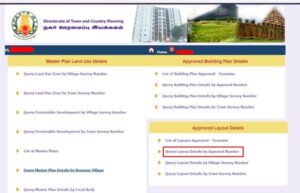Obtaining DTCP (Directorate of Town and Country Planning) approval for Panchayat approved land is an essential step in ensuring legal compliance and maximizing the potential of your property. Whether you plan to develop residential or commercial projects, the DTCP approval process is crucial for securing necessary permits and permissions. In this blog post, we will provide a detailed guide on how to navigate the process of obtaining DTCP approval for Panchayat approved land. We will cover the key steps, requirements, and important considerations to streamline the approval process successfully.
I. Understanding the DTCP Approval Process
To begin with, it is crucial to familiarize yourself with the DTCP approval process. Here are the key steps involved:
- Preliminary Research: Conduct a thorough study of the land and ascertain its Panchayat approval Ensure that the land is eligible for DTCP approval.
- Prepare Documentation: Gather all the necessary documents, such as land records, survey records, and title It is advisable to engage a professional surveyor to prepare an accurate land survey and plan.
- Architectural Drawings: Employ the services of a licensed architect to create detailed architectural drawings that comply with the local building codes and regulations.
- Application Submission: Complete the application forms provided by the DTCP at the website https://tcp.tn.gov.in/ and submit them along with the required Ensure that all information provided is accurate and up to date.
- Scrutiny and Site Inspection: Once the application is submitted, the DTCP officials will scrutinize the documents and conduct an on-site inspection to verify the information provided in the application.

- Compliance Verification: The DTCP will assess the proposed project’s compliance with zoning regulations, building codes, and environmental Any deviations or non-compliance may require modifications to the project plan.
- Approval or Rejection: Based on the scrutiny and compliance verification, the DTCP will either grant approval or reject the application. In case of rejection, the reasons will be communicated, allowing for necessary modifications to be made.
- Payment of Fees: Upon receiving approval, the applicant is required to pay the prescribed fees, which vary based on the project size and nature.
- Grant of Approval and Commencement: Once the fees are paid, the DTCP will issue the final approval letter, allowing the project to commence.
 II. Requirements for DTCP Approval
II. Requirements for DTCP Approval
To ensure a smooth approval process, it is vital to fulfill the following requirements:
- Ownership and Title: The applicant must possess clear and marketable title to the land and provide the necessary documents to establish ownership.
- Land Use Zoning: The proposed project must conform to the land use zoning regulations specified by the DTCP. For example, residential projects should be situated in areas designated for residential use.
- Building Codes and Regulations: The architectural drawings and project plan must comply with the local building codes and regulations regarding setbacks, height restrictions, and other specifications.
- Environmental Clearance: If the project falls within an environmentally sensitive zone, obtaining environmental clearance from the appropriate authorities is mandatory.
- Infrastructure Provision: Ensure that the necessary infrastructure, such as access roads, water supply, drainage, and sewage disposal, are planned and provided as per the DTCP guidelines.
III. Important Considerations
- Engage Professionals: It is highly recommended to engage professionals such as architects, surveyors, and legal experts to assist you throughout the DTCP approval Their expertise and knowledge will help streamline the process and ensure compliance with regulations.
- Timelines and Delays: Understand that the DTCP approval process may involve several stages and can take time. Delays may occur due to factors such as pending clearances, incomplete documentation, or additional information requested by the authorities. It is essential to be patient and plan your project timeline accordingly.
- Regular Follow-ups: Maintain regular communication with the DTCP officials to track the progress of your application. Promptly respond to any queries or requests for additional information to avoid unnecessary delays.

- Public Notices and Objections: During the approval process at the website https://www.tn.gov.in/tcp/approvals.html , public notices may be issued, inviting objections or suggestions from the public. Be prepared to address any objections raised and provide clarifications, if necessary.
- Post-Approval Obligations: After receiving DTCP approval, fulfill any post-approval obligations, such as payment of development charges, adhering to construction guidelines, and timely completion of the project.
 Frequently Asked Questions (FAQs)
Frequently Asked Questions (FAQs)
Q1: What is the significance of DTCP approval for panchayat approved land?
A1: DTCP approval ensures that your project is legal, safe, and compliant with urban planning regulations, safeguarding against legal issues and ensuring future utilities.
Q2: How long does the DTCP approval process usually take?
A2: The duration varies based on the complexity of the project and the workload of the local DTCP office. It can range from a few weeks to a few months.
Q3: Can I undertake construction before obtaining DTCP approval?
A3: It is strongly recommended to obtain DTCP approval before commencing any construction work to avoid legal complications and potential demolition.
Q4: Can I apply for DTCP approval online?
A4: The availability of online application submission depends on the specific region and local DTCP office. Check with the respective authority for online submission options.
Q5: What happens if my application gets rejected?
A5: If your application is rejected, you will receive a rejection notice specifying the reasons. You can address the issues and reapply by making the necessary corrections or modifications.
Conclusion
Obtaining DTCP approval for Panchayat approved land is a crucial step towards realizing your residential or commercial project. By following the steps outlined in this guide, ensuring compliance with requirements, and engaging professionals, you can navigate the approval process smoothly. Remember to plan ahead, fulfill your obligations, and stay informed about any changes or updates in the DTCP regulations. With persistence and adherence to the rules, you can secure DTCP approval and unlock the full potential of your land.

